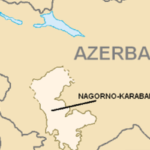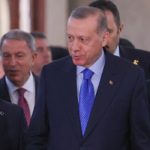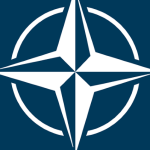The historic tug-of-war between Beijing and Taipei
The Communist Party of China has always - regardless of which government was holding the reins of the Republic of China (Taiwan) - advocated the annexation of the island, based on the one China principle. By virtue of which Beijing considers the island a mere "rebel province". The young Chinese of the mainland motherland know that they will have to fight (and die) to convince the rebels to become part of the formula that envisages "One Country, Two Systems". A formula that would see the democratic government of Taipei surrendering to Beijing and would allow (similar to the current reality in Hong Kong) the transformation of the "province" into an island occupied and administered with the rules of the communist regime.
At the moment, fortunately, in Taipei there is the certainty that anyone in government who accepted Beijing's theory would be seen as a traitor to the Fatherland and would be forced to resign. The Taiwanese feel part of an independent country that is not, and would not want to be, controlled by a communist regime. The vast majority of Taiwanese still think that People's China and Taiwan represent two different countries. Many of them would even be willing to declare formal independence, even at the risk of a destructive attack from Beijing.
People's China's position remains the same: "The Republic of China has not existed since it lost the civil war in 1949, ceasing to be a sovereign state."Over the years it has become evident that for Beijing the goal is not to maintain the status quo and harmony, but only annexing the island at any cost. The Communist Party has continued ideologically, during its large-scale meetings, to give a mandate to the Beijing government to use the strongest possible force: both maintaining the missile threat towards the island and investing heavily in the military instrument. To reiterate, if there was still a need, that the words that must guide the Strait policy are two: "Deterrence and Intimidation".
Many analysts believe that the more Taipei governments try to reduce tension with Beijing, the more the People's China insists on having the island under its control. However, the example of Hong Kong, with its disregard for human rights and democracy in the "special administrative region," shows the Taiwanese how impractical it is to hope that, in the event of reunification, there is still room for self-determination.
Tangles between East and West: Ukraine and Taiwan, Russia and China
Now the attention of the world is focused on Russia, the end of the conflict in Ukraine and the immediate and future exploitation of Moscow's energy resources, as well as the imminent crisis due to the shortage on the market of Ukrainian (blocked by the war) and Russian (blocked by sanctions) cereals. The world food chain begins to show the first signs of crisis, as in Ukraine warehouses are not emptied, deliveries are not made, sowing and harvesting are not done, and from Russia there are problems to ensure deliveries abroad. The People's China could soon organize itself to be the first energy and food customer of Moscow.
In the meantime, Beijing seems to have expressed a strategic interest in expanding its nuclear arsenal in order to use it as a deterrent in case of a world war or, better, in an anti-US key (satellite photos reveal this). Beijing has made the Russian strategy/lesson its own: with a credible nuclear threat one "stays" in conventional warfare. In short, Beijing has decided to increase the nuclear tool to prevent Washington from intervening should it invade Taiwan.
It is now clear that Beijing does not want to control Taiwan for the mere historical-ideological claims, highlighted until now, but above all to have the control of microprocessors. Without microprocessors the world industry stops and the Republic of China-Taiwan is the first producer for quantity and quality. If Taiwan is invaded and in the hands of People's China, Beijing would have the world control of electronic production.
The case of Nancy Pelosi's visit to Taiwan
For now, the Chinese President Xi draws "red lines", such as the one he has indicated in recent days as not surmountable, for the visit to Taipei of the speaker of the US Congress, Nancy Pelosi. Taiwan's Foreign Minister Joseph Wu dismissed Beijing's objection to the visit, stating, "It is bad to oppose the work of an icon of the U.S. Congress and champion of democracy. It is better for People's China to stop supporting Russia, threatening Taiwan and start freeing people. Freedom and human rights taste good."
Pelosi's visit would take on important significance in the West, as many analysts accuse Beijing of supporting Russia's war against Ukraine and observers are closely following the People's China's moves toward Taiwan. Beijing may be tempted to follow in the wake of the motivations Moscow used for its aggression against Kiev, even though it stubbornly maintains that the two situations are neither similar nor comparable.
Pelosi's mission was, in the end, postponed and the reason that "unblocked" the diplomatic dispute was ...from China. In fact, irony of history, the speaker of Congress did not go to Taipei because she fell ill from the virus that brought the pandemic around the world due to the inexperience (euphemism) of the People's China: the Wuhan Virus or, for those who want to avoid reactions from Beijing, the Covid-19.
Senior Fellow of the Machiavelli Center for Political and Strategic Studies. Brigadier General (Aux.) of the Italian Army, member of the Directorate of the NATO Defense College Foundation. For years director of the Middle East Faculty within the NATO Defense College.









Scrivi un commento